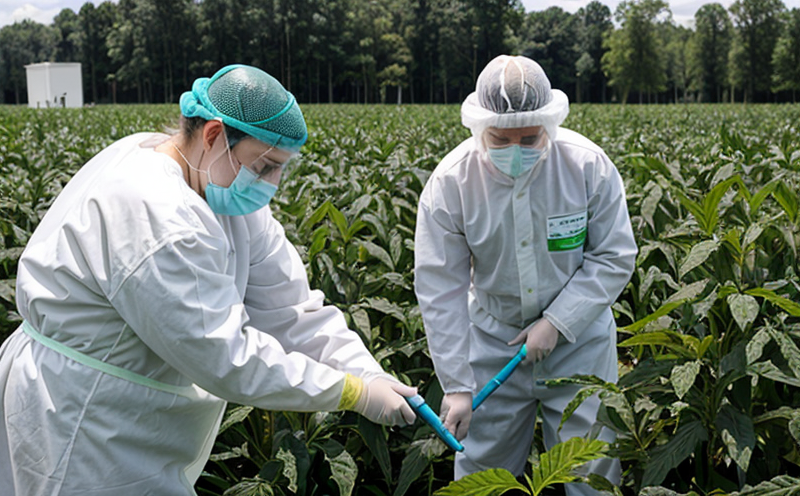OECD 306 Biodegradability Testing in Marine Environments
The OECD 306 biodegradability test protocol is a critical standard used to assess the potential of organic compounds, particularly chemicals and chemical waste materials, to undergo degradation by microorganisms under specific marine environmental conditions. This testing ensures that substances released into aquatic environments do not persist in harmful concentrations, thereby protecting marine ecosystems from contamination.
The OECD 306 protocol is essential for various sectors, including pharmaceuticals, agrochemicals, and industrial chemicals manufacturing. Regulatory compliance and product safety are paramount considerations when developing new compounds or reformulating existing products. The OECD 306 test helps ensure that these substances do not accumulate in the environment, which could lead to unforeseen ecological impacts.
The testing process involves several stages: sample preparation, inoculation with marine microorganisms, incubation under controlled conditions, and monitoring for biodegradation over a specified period. Compliance officers responsible for environmental regulations often rely on this test to ensure that their organization's products meet stringent international standards such as OECD 306.
For R&D engineers tasked with developing new formulations or improving existing ones, the OECD 306 protocol provides valuable insights into how different molecular structures interact with marine ecosystems. This information is crucial for designing safer and more sustainable products. Quality managers and procurement personnel also benefit from this test by ensuring that their supply chains adhere to rigorous environmental standards.
The OECD 306 biodegradability test in marine environments follows specific guidelines outlined by the Organization for Economic Co-operation and Development (OECD). These include detailed instructions on sample preparation, inoculum selection, incubation conditions, and endpoint determination. The primary goal of this protocol is to provide a standardized method that allows for consistent and reliable results across different laboratories.
Sample preparation is an intricate process involving the dilution of test substance in seawater at specified concentrations. Marine microorganisms play a pivotal role in this step as they are used to inoculate the samples, promoting natural biodegradation processes. Incubation typically takes place under controlled conditions that mimic real-world marine environments as closely as possible.
Monitoring for biodegradation involves regular sampling and analysis of the test solutions at set intervals throughout the incubation period. Various analytical techniques may be employed depending on the nature of the compound being tested, including gas chromatography-mass spectrometry (GC-MS), high-performance liquid chromatography (HPLC), and Fourier transform infrared spectroscopy (FTIR).
The endpoint for OECD 306 biodegradability testing in marine environments is defined as a reduction in the concentration of the test substance by at least 70% after 28 days of incubation. This threshold reflects current scientific understanding regarding what constitutes significant degradation and poses minimal risk to aquatic life.
Compliance with OECD 306 standards is not only beneficial for protecting marine ecosystems but also有助于<|im_start|>⚗️





